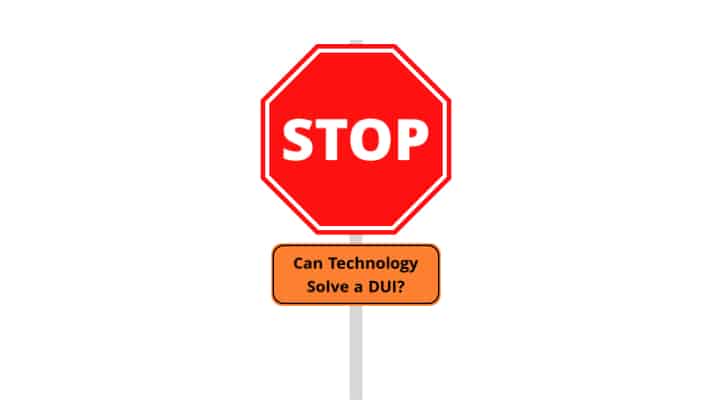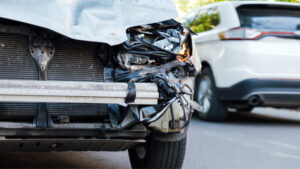Written By Chris Dolan and Jeremy Jessup
This week’s question comes from Annie from Oakland, who asks: I recently read an article about the Simmons family out of Louisiana, their tragedy, and how the family is taking steps to educate teenagers about the perils of drinking and driving. That story, coupled with the fact that the July 4th holiday is upon us, had me thinking; with all the advancement of technology, why are there still drunk drivers on the road, and is July 4th the most dangerous day to drive?
Thank you for raising this question.
I, too, have read about the Simmons family, their loss, and their attempts to raise awareness. Unfortunately, their story is not as unique as it should be. Drunk driving remains a significant problem throughout the country, and certain days are more dangerous on the roads than others.
Alcohol-related crashes are responsible for 30% of all U.S. traffic deaths, and in 2020, the most recent year data is available, was responsible for killing more than 11,000 people on the roads. That number has gone up by 14% since 2019, according to the National Highway Traffic Safety Administration.
MoneyGeek recently posted findings from an analysis they performed. They analyzed historical data from the U.S. Department of Transportation and the National Highway Traffic Safety Administration (NHTSA) to forecast 2023’s most dangerous days, weeks, and holidays for driving under the influence (DUI) in the United States.
Their key findings were as follows:
- MoneyGeek forecasts 13,490 DUI fatalities in 2023.
- The historical trend of DUI fatalities that drives the forecast has increased. 2021’s DUI fatalities are 23% higher than 2016’s and are at levels not seen since 2003.
- Summer will account for 28% of drunk driving-related fatalities, making it the deadliest season.
- The week of July 4th is forecasted to be the deadliest in 2023, with 311 expected fatalities.
- On New Year’s Day, drunk driving-related deaths spiked 117%, making it the most dangerous holiday for drunk driving.
- 60% of drunk driving-related fatalities happen on the weekends (Friday through Sunday).
According to MoneyGeek’s analysis, drunk driving incidents are prevalent every day of the week, but certain seasons bring out more than usual. For example, 28% of DUI-related deaths are projected to happen in the summer of 2023. Fall is close behind summer, coming in with 27%. Spring has 24% of DUI incidents, and winter, with 21%, is the least likely season to be involved in a DUI-related fatal collision.
The top five riskiest holidays for drunk driving are:
- New Year’s Day
- July 4th
- Thanksgiving
- Labor Day
- Memorial Day
As mentioned above, the likelihood of a drunk driver causing a fatal collision on New Year’s Day is 117% higher than on any other day of the week or season. Unlike other holidays, where festivities may last several days, New Year’s only lasts one night, with people returning home in the early hours of the following day.
Based on MoneyGeek’s figures, July 4th is in a distant second position compared to New Year’s Day. On July 4th, your chances of encountering drunk drivers are 77% higher than the norm. With a risk of 55% higher than the trend, Thanksgiving is the third most hazardous holiday.
Labor Day is the fourth most risky holiday for drunk driving (54%), and Memorial Day is the fifth most risky holiday (51% more than average). On Christmas Day, fewer people tend to leave their homes; therefore, the likelihood of running into a drunk driver is 9% higher than usual.
Given the high rate of fatalities, which seems only to be rising, the question becomes, what is being done about this? Heather Geronemus, chair of the board for MADD, “believes that technology will ultimately solve the problem of drunk driving. We are working on Capitol Hill to support legislation such as the RIDE Act and HALT Act, which would direct the Department of Transportation to require new cars to have advanced technology to detect and stop drunk drivers.” She is not too far off.
Buried deep on Page 135 of a $1 trillion spending bill signed by President Biden in 2021 is a provision that by 2026, all new vehicles sold in the U.S. must have a system that will immobilize the vehicle, when drivers are under the influence of alcohol and if they are drunk.
There’s only one issue: technology doesn’t exist for a widely used commercial application yet. As reported by Automotive News, the technology to passively detect if drivers may be drunk could be years away. However, efforts are underway to offer the tech as soon as possible.
Asahi Kasei, a Japanese chemical and electronics company, may be closest to presenting a solution. They have had a Swedish subsidiary working on alcohol detection sensors for other applications for some time, according to AutoNews. This technology would automatically test a driver’s breath for alcohol and stop a vehicle from moving if the driver is impaired.
“To be honest, I think it took everybody by surprise, not only in our company but at all the OEMs and Tier 1’s that this legislation appeared,” Mike Franchy, North American director of supplier Asahi Kasei told Automotive News.
Another company is working on a technology that could test a person’s blood alcohol level through their fingers. Again, this technology is far off.
As of now, it appears that auto manufacturers are trying their best to meet the 2026 timeline. However, even if the technology is there, it will take time to implement and cycle through the new cars. Hopefully, one day there will be no more articles to read like that of the Simmons family or for articles such as this to be written.










